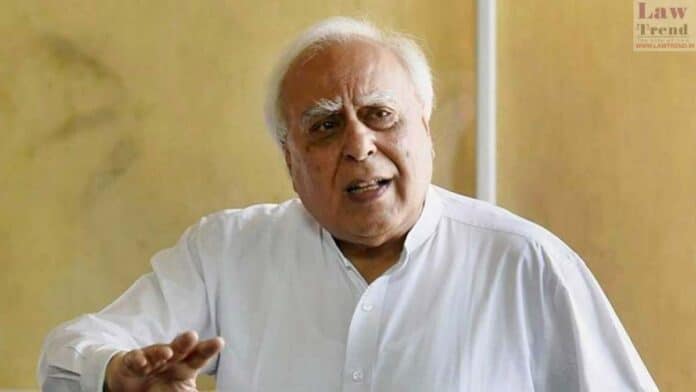During the ‘National Conference of the District Judiciary’, inaugurated by Prime Minister Narendra Modi, Rajya Sabha MP and senior advocate Kapil Sibal voiced significant concerns over the challenging conditions faced by judges in district courts. Sibal, who also serves as the President of the Supreme Court Bar Association, stressed that the subpar working conditions and inadequate compensation directly affect the quality and quantity of justice dispensed.
In his address, Sibal pointed out that the reluctance of trial courts to grant bail in significant cases is symptomatic of deeper issues within the judiciary. He emphasized the foundational role of liberty in a democracy and criticized any attempts to undermine it, noting that the Supreme Court has increasingly had to intervene in bail matters, which should ideally be handled more judiciously at the trial court level.
Reflecting on the state of the district judiciary, Sibal argued that the abysmal working conditions deter talented young legal minds from pursuing careers as district judges. He described a grim picture where judges, despite their dedication, work under constraints like inadequate courtrooms, insufficient office facilities, lack of necessary transportation, and poor residential accommodations.
“The conditions in which these judges operate are deterring the kind of talent and commitment needed at this critical level of our judiciary,” Sibal said. He called for immediate improvements in salaries and infrastructure to ensure that the judiciary can function effectively.
Highlighting the broader implications of these issues, Sibal addressed the need for judicial reforms including better pensions, promotions, gender sensitization, and technological integration within the judicial system. He also called for incentives to attract more candidates to judicial services.
Sibal took a strong stance against referring to the judiciary at the trial court level as “subordinate,” arguing that it undermines the crucial role these courts play in the justice system. He advocated for greater judicial independence at the district level, insisting that judges should be able to make decisions without fear of repercussions.
“The effectiveness, fairness, and integrity of our courts shape public perception of the entire judicial system,” Sibal added, stressing the importance of addressing these issues not just for the sake of the judiciary but for the millions whose lives are impacted by judicial outcomes.
The conference also featured discussions on creating a National District Judiciary Capacity Building Commission, suggested by Attorney General R Venkataramani, to better support the needs and challenges faced by the district judiciary.




